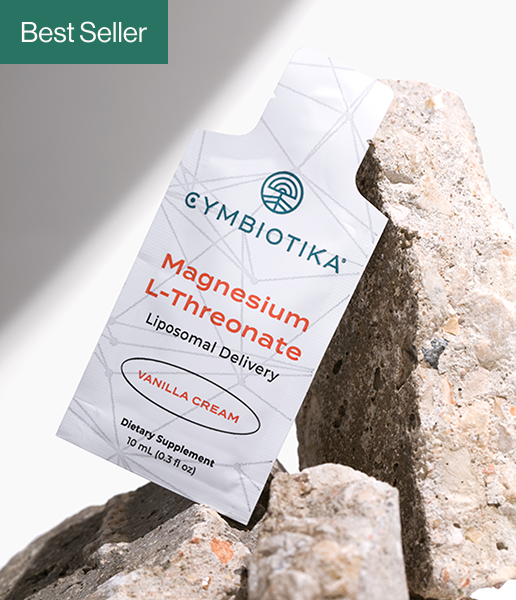
Coenzyme Q10
Coenzyme Q10, also known as CoQ10, is a compound that helps generate energy in your cells.
Your body produces CoQ10 naturally, but its production tends to decrease with age. Fortunately, you can also get CoQ10 through supplementation.
Health conditions like heart disease, brain disorders, diabetes, and cancer have been linked to low levels of CoQ10. (1)
Coenzyme Q10 (CoQ10) or ubiquinone was known for its key role in mitochondrial bioenergetics as electron and proton carrier; later studies demonstrated its presence in other cellular membranes and in blood plasma, and extensively investigated its antioxidant role. These two functions constitute the basis for supporting the clinical indication of CoQ10. Furthermore, recent data indicate that CoQ10 affects expression of genes involved in human cell signalling, metabolism and transport and some of the effects of CoQ10 supplementation may be due to this property. CoQ10 deficiencies are due to autosomal recessive mutations, mitochondrial diseases, ageing-related oxidative stress and carcinogenesis processes, and also a secondary effect of statin treatment. Many neurodegenerative disorders, diabetes, cancer, fibromyalgia, muscular and cardiovascular diseases have been associated with low CoQ10 levels. CoQ10 treatment does not cause serious adverse effects in humans and new formulations have been developed that increase CoQ10 absorption and tissue distribution. Oral CoQ10 treatment is a frequent mitochondrial energizer and antioxidant strategy in many diseases that may provide a significant symptomatic benefit.(1)
CoQ10 is a compound made by your body and stored in the mitochondria of your cells (2).
The mitochondria are in charge of producing energy. They also protect cells from oxidative damage and disease-causing bacteria or viruses (3).
CoQ10 production decreases as you age. Thus, older people seem to be deficient in this compound.Some other causes of CoQ10 deficiency include (2, 4):
Nutritional deficiencies, such as vitamin B6 deficiency
Genetic defects in CoQ10 synthesis or utilization
Increased demands by tissues as a consequence of disease
Mitochondrial diseases
Oxidative stress due to aging
Side effects of statin treatments
Research has shown that CoQ10 plays several key roles in your body.
One of its primary functions is to help generate energy in your cells. It’s involved in making adenosine triphosphate (ATP), which is involved in energy transfer within cells (2).
Its other crucial role is to serve as an antioxidant and protect cells from oxidative damage (2, 5).
Excessive amounts of free radicals lead to oxidative damage, which can interfere with regular cell functioning. This is known to cause many health conditions (6Trusted Source).
Given that ATP is used to carry out all the body's functions and oxidative damage is destructive to cells, it is not surprising that some chronic diseases have been linked to low levels of CoQ10 (5).
CoQ10 is present in every cell of your body. However, the highest concentrations are found in organs with the greatest energy demands, such as the heart, kidneys, lungs and liver (7).
Abnormal mitochondrial function can lead to an increased calcium uptake by the cells, the excessive production of free radicals and decreased antioxidant protection. This can result in low energy in the brain cells and even migraines.Since CoQ10 lives mainly in the mitochondria of the cells, it has been shown to improve mitochondrial function and help decrease the inflammation that may occur during migraines (8).
In fact, a study showed that supplementing with CoQ10 was three times more likely than a placebo to reduce the number of migraines in 42 people (10).
Additionally, CoQ10 deficiency has been observed in people suffering from migraines.
One larger study showed that 1,550 people with low CoQ10 levels experienced fewer and less severe headaches after treatment with CoQ10 (11).
What’s more, it seems that CoQ10 not only helps treat migraines but may also prevent them (12). Supplementing with CoQ10 seems to help prevent and treat migraines, as it increases mitochondrial function and reduces inflammation.
Similarly, abnormal mitochondrial function can reduce muscle energy, making it hard for muscles to contract efficiently and sustain exercise (13).
CoQ10 can help exercise performance by decreasing oxidative stress in the cells and improving mitochondrial functions (14).
FOUND IN THE FOLLOWING PRODUCT(S)
Works Cited & Clinical Studies
1. Clinical applications of coenzyme Q10
2. Coenzyme q10 therapy
3. Mitochondrial control of cellular life, stress, and death
4. Genetics of coenzyme q10 deficiency
5. Ubiquinol: an endogenous antioxidant in aerobic organisms
6. Oxidative stress, redox signaling, and autophagy: cell death versus survival
7. Coenzyme Q10: The essential nutrient
8. A randomized, double-blinded, placebo-controlled, crossover, add-on study of CoEnzyme Q10 in the prevention of pediatric and adolescent migraine
9. Benefits of Coenzyme Q10 (CoQ10) Arlene Semeco, MS, RD on October 12, 2017
10. Efficacy of coenzyme Q10 in migraine prophylaxis: a randomized controlled trial
11. Coenzyme Q10 deficiency and response to supplementation in pediatric and adolescent migraine
12. Effectiveness of coenzyme Q10 in prophylactic treatment of migraine headache: an open-label, add-on, controlled trial
13. Fatigue and exercise intolerance in mitochondrial diseases. Literature revision and experience of the Italian Network of mitochondrial diseases
14. Oxidative stress and antioxidant defense in plasma after repeated bouts of supramaximal exercise: the effect of coenzyme Q10










